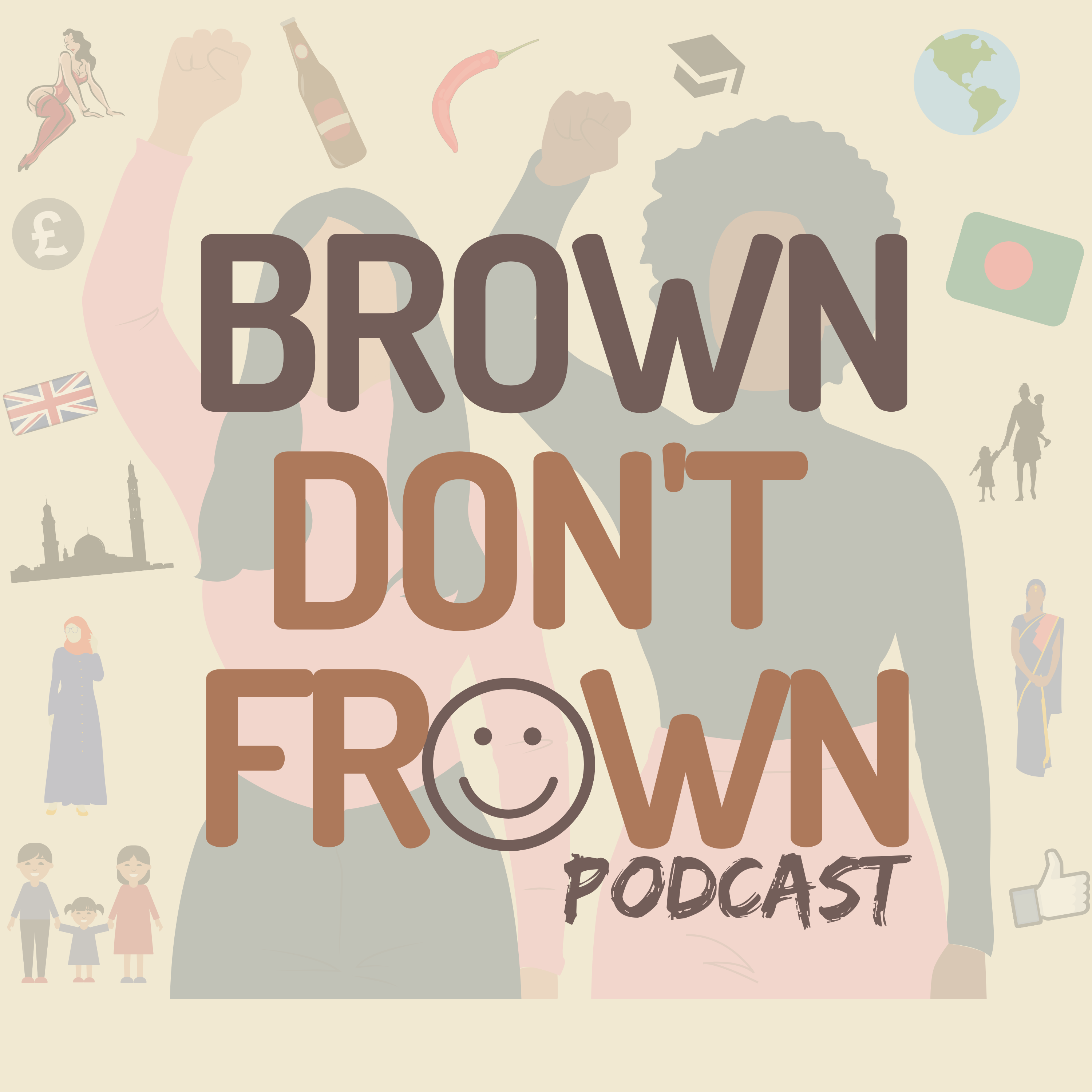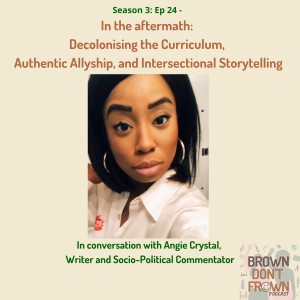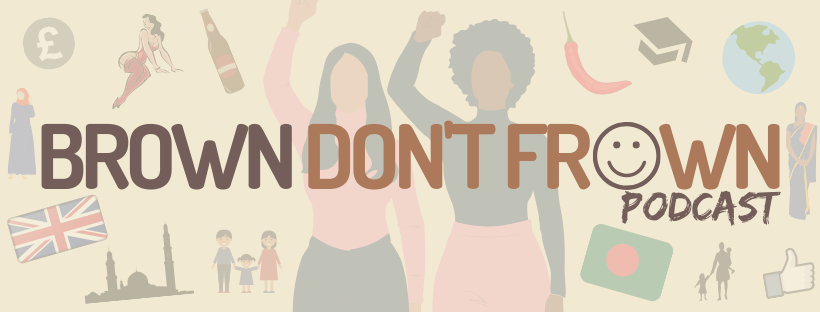
Brown Don't Frown was borne out of a personal journey with womanhood. As a British Bangladeshi, navigating mainstream Feminism often felt exclusionary to me because it didn’t seem to value the experiences or views which shaped my grandmother’s, aunts’, mother’s or friends’ lives. Through this podcast, we seek to build a more inclusive discourse, which breaks down presumptions about different cultures, and shines a positive light on the stories of underrepresented women. Featuring new guest(s) from different walks of life in each episode, Brown Don’t Frown seeks to engage ordinary women and facilitate openness towards entirely new perspectives. It hopes to spark honest and meaningful conversations about intersectional feminist themes in contemporary society with the acknowledgement that our views are shaped by our cultural, racial, religious, social and political experiences. Whether it's discussing society's preconceptions about the Hijab with a British-born Jamaican Muslim woman or examining the impact of gendered expectations on our ability to grieve on our own terms, we hope listeners finish each episode feeling more rounded than they did before. Follow us on: Instagram: https://www.instagram.com/browndontfrownpodcast/ Twitter: https://twitter.com/bdfpodcast?lang=en Facebook: https://www.facebook.com/browndontfrownpodcast LinkedIn: https://www.linkedin.com/company/browndontfrownpodcast
Episodes

Saturday Oct 31, 2020
Saturday Oct 31, 2020
In this raw, frank, and necessary episode, writer Angie Crystal talks about the incoming societal change driven by the resurgence of Black Lives Matter. Five months on from the killing of George Floyd, we discuss the symbolism of BLM as a movement.
We talk about intersectional story-telling, and I ask Angie Crystal whether, as a Black British woman, she feels any dissonance between #BlackLivesMatter and mainstream Feminism. She feels that there is a lack of intersectionality, because colour is removed from the narrative, which disproportionately affects Black women due to the compounding of gender, race, colourism and history. For example, the Gender Pay Gap has been widely publicised, but the Ethnicity Pay Gap, between White men and Black women hasn’t received the same traction. We look at the shortcomings of the #MeToo movement, the distinction between performative allyship and true allyship, and the importance of acknowledging (and reckoning with) one’s own privilege.
We ask: will the UK ever get behind its colonial past? Angie Crystal explains why there needs to be an open and honest conversation around our roots of wealth. Slave-owner compensation is archived in British history. In the same vein, are reparations justifiable, or would they undermine the empowerment and agency of Black people and indict them into a dark past?
We discuss how decolonising the curriculum in schools is fundamental to curbing denialism and consider how it can be embedded at an institutional level. We explore the correlation between economic inequality and systemic racism, both in the UK and the US. With this example, we question whether challenging racism exclusively through the lens of ideology or identity politics, rather than through systemic change can be counterproductive.
We end on a deeply sombre yet poignantly brave note, as Angie Crystal recounts her father being killed while living and working in the US while she, with her mother and sister, were in the UK. She reflects on the ghost of things unsaid and her sense of displacement at the unsolved mystery, and still no closure.
In the aftermath of George Floyd’s killing, we must unlearn the desensitisation of trauma and instant gratification we've been taught by social media, and learn to live with greater purpose.

No comments yet. Be the first to say something!